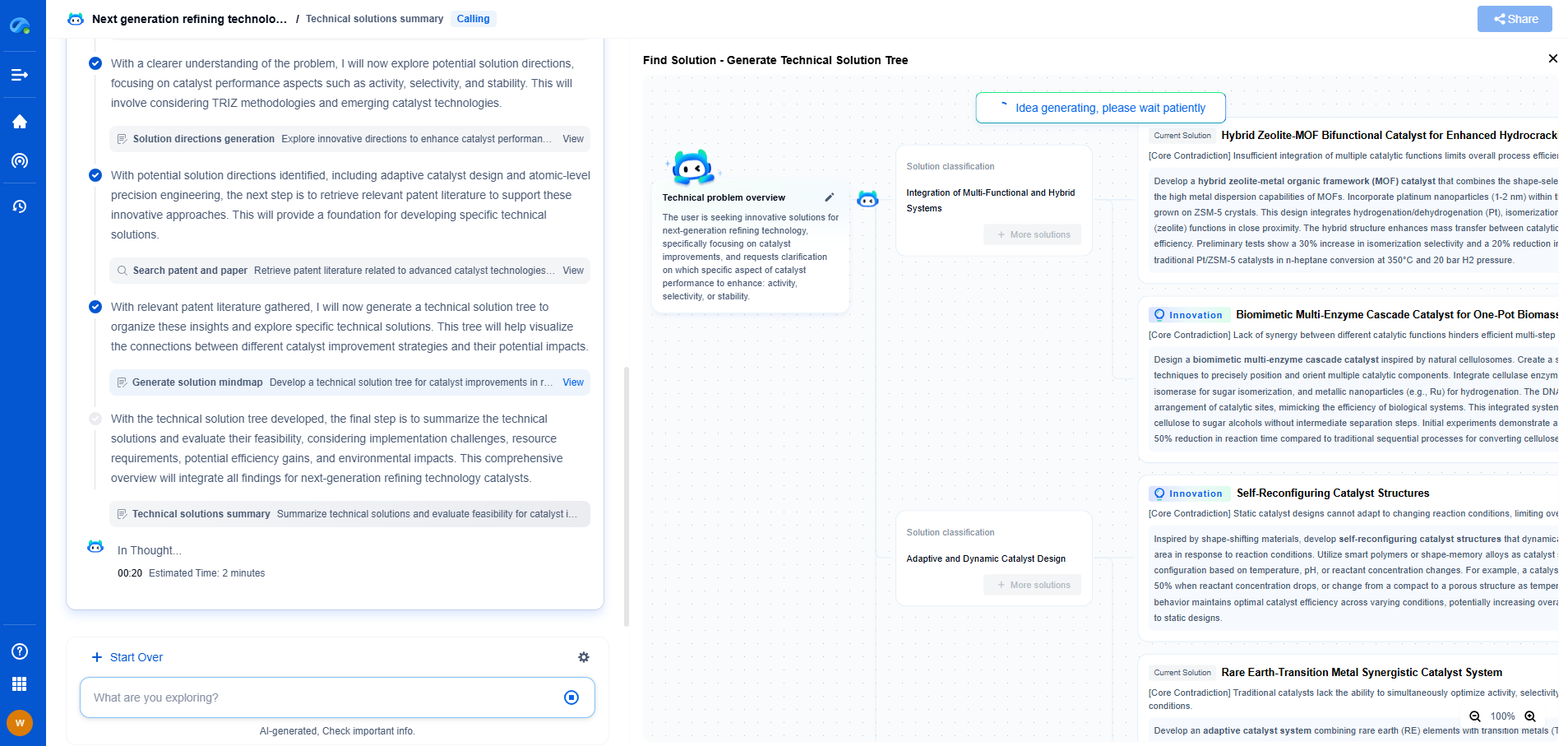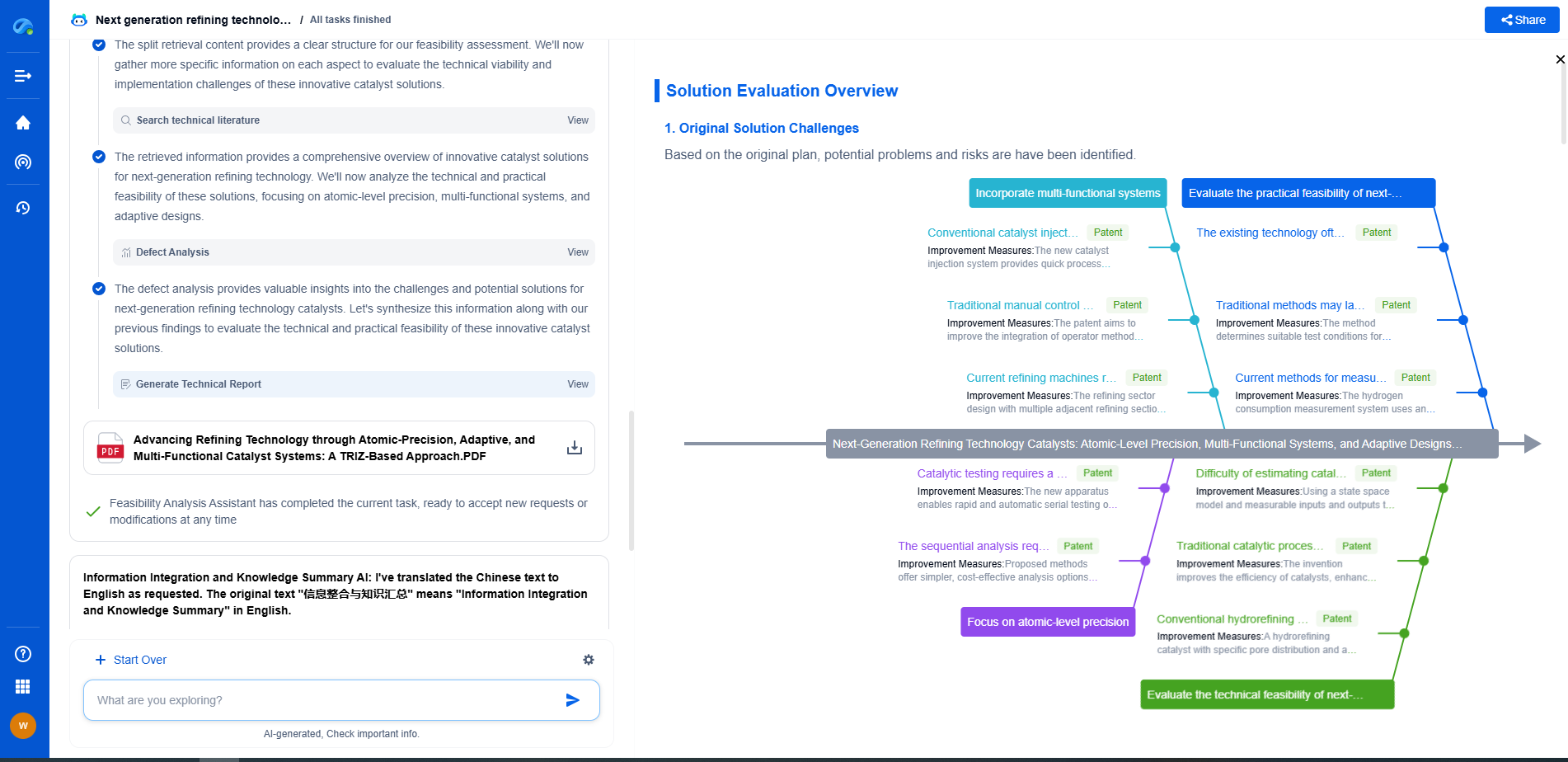How Solid-State Batteries Will Impact Power Backup Systems
JUN 26, 2025 |
Solid-state batteries are emerging as a revolutionary advancement in the field of energy storage technology. Unlike traditional lithium-ion batteries, which use liquid or gel electrolytes, solid-state batteries employ a solid electrolyte. This fundamental difference offers numerous advantages, including higher energy density, improved safety, and longer lifespan. As the demand for efficient power backup systems continues to grow, solid-state batteries are poised to make a significant impact on the industry.
Enhanced Energy Density and Efficiency
One of the primary benefits of solid-state batteries is their increased energy density. This means they can store more energy in a smaller space compared to conventional batteries. For power backup systems, this translates to more compact and lightweight units that can deliver the same, if not greater, capacity. This improvement in energy efficiency will be particularly beneficial in applications where space is at a premium, such as in data centers and telecommunications facilities.
Improved Safety and Reliability
Safety has always been a critical concern with traditional battery technologies. The use of liquid electrolytes in lithium-ion batteries poses risks of leakage, flammability, and thermal runaway, leading to potential fires. Solid-state batteries eliminate these hazards by using a non-flammable solid electrolyte, which significantly reduces the risk of catastrophic failure. This inherent safety feature makes solid-state batteries an attractive option for power backup systems, especially in environments where reliability is crucial.
Extended Lifespan and Durability
Another advantage of solid-state batteries is their extended lifespan. The solid electrolyte is less prone to degradation over time, allowing these batteries to maintain their capacity and performance for longer periods. This durability is particularly advantageous for power backup systems that require long-term reliability and minimal maintenance. By reducing the frequency of battery replacements, solid-state technology can lead to cost savings and a reduced environmental impact.
Faster Charging and Discharging Capabilities
Solid-state batteries also offer faster charging and discharging rates compared to their liquid-based counterparts. This characteristic enables power backup systems to recharge more quickly after a power outage, ensuring that they are ready for the next event. Additionally, the ability to rapidly discharge energy allows these systems to respond more effectively to sudden spikes in demand, providing a more stable and reliable power supply.
Potential Challenges and Considerations
Despite their numerous advantages, solid-state batteries are not without challenges. One of the primary hurdles is the cost of production, which is currently higher than that of traditional batteries. However, as research and development continue and manufacturing processes improve, these costs are expected to decrease. Another consideration is the scalability of solid-state battery technology, as large-scale production and integration into existing systems remain areas of active exploration.
Conclusion: A Transformative Future for Power Backup Systems
In conclusion, solid-state batteries hold great promise for revolutionizing power backup systems. With their enhanced energy density, improved safety, extended lifespan, and faster charging capabilities, they offer significant advantages over traditional battery technologies. While there are challenges to overcome, the potential benefits of solid-state batteries make them a compelling option for the future of power backup solutions. As technology advances and costs decrease, it is likely that solid-state batteries will become a staple in ensuring reliable and efficient power backup for a wide range of applications.
Stay Ahead in Power Systems Innovation
From intelligent microgrids and energy storage integration to dynamic load balancing and DC-DC converter optimization, the power supply systems domain is rapidly evolving to meet the demands of electrification, decarbonization, and energy resilience.
In such a high-stakes environment, how can your R&D and patent strategy keep up?
Patsnap Eureka, our intelligent AI assistant built for R&D professionals in high-tech sectors, empowers you with real-time expert-level analysis, technology roadmap exploration, and strategic mapping of core patents—all within a seamless, user-friendly interface.
👉 Experience how Patsnap Eureka can supercharge your workflow in power systems R&D and IP analysis. Request a live demo or start your trial today.
- R&D
- Intellectual Property
- Life Sciences
- Materials
- Tech Scout
- Unparalleled Data Quality
- Higher Quality Content
- 60% Fewer Hallucinations
Browse by: Latest US Patents, China's latest patents, Technical Efficacy Thesaurus, Application Domain, Technology Topic, Popular Technical Reports.
© 2025 PatSnap. All rights reserved.Legal|Privacy policy|Modern Slavery Act Transparency Statement|Sitemap|About US| Contact US: help@patsnap.com

